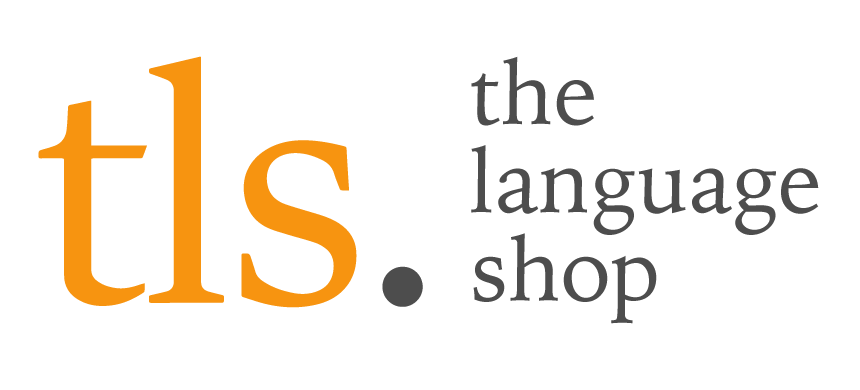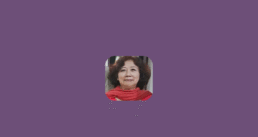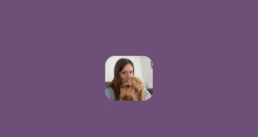The Linguist’s Story - November
Every month, we get to know a bit more about one of our linguists. This month, we introduce you to Tamami, an interpreter working in Japanese.
Tell us about the work you do for TLS.
I work for TLS as a Japanese interpreter, primarily within the medical sector (NHS). My assignments take place in a variety of settings, including GPs, hospitals, dental clinics, patients’ homes and care homes. I also provide interpreting services for local authorities, schools and government agencies when required. I provide translation services as well.
What's been your favourite project at TLS?
Having obtained DPSI (Health) qualification, I specialise in the medical field and so I enjoy working in healthcare settings, assisting people with various illnesses as they communicate with health professionals during medical appointments gives me a profound sense of accomplishment.
What has been your biggest challenge?
One of the most significant challenges I encountered occurred when I was assigned to interpret for a female service user who had been sectioned (under the Mental Health Act).
My role was to interpret everything she said as accurately as possible, which was extremely challenging. Some sectioned patients also use strong or offensive language aggressively. In such cases, it is essential to interpret the language faithfully so that the medical team can accurately assess the patient’s mental state.
Although this experience was challenging, it provided me with valuable professional learning. I gained a deeper understanding of how to manage complex interpreting situations in mental health settings and learned two key safety principles: (1) never be alone with a sectioned patient, and (2) always maintain an appropriate distance and sit near the door in case of sudden aggression of a sectioned patient.
Overall, this was a demanding yet invaluable experience that strengthened both my interpreting skills and my awareness of safety in clinical environments.
Can you tell us about a time your work has made a difference to someone’s life?
I believe accuracy is extremely important, especially when interpreting patients’ symptoms. For example, there are many different types of pain: sharp pain, dull pain, stabbing pain, squeezing pain, stinging pain, throbbing pain, tight pain and so on. For doctors to provide proper treatment and prescribe the right medication, interpreters must convey patients’ words as precisely as possible. In this sense, I feel that every time I interpret for patients in medical settings, I am helping them to receive the correct treatment and improve their quality of life.
Tell us something interesting about you
I am originally from Tokyo, Japan, and have lived in the UK for 29 years. I have been working as a Japanese interpreter for 18 years and I also hold a postgraduate certificate in Teaching Japanese as a Foreign Language. I have two grown-up children, one granddaughter and two Siamese cats. (I am a cat lover!) My hobbies are listening to music and watching films. Currently, I am learning Indonesian, having previously studied German and French, as I love exploring languages and the cultures they reflect. I enjoy meeting people and find great satisfaction in interpreting on behalf of TLS.
World Pancreatic Day - our colleague’s story
TLS recruitment lead Stephanie Bright shares her story of fundraising for her beloved dad, who she sadly lost to pancreatic cancer.
“World Pancreatic Day is 20 November, as part of the wider Pancreatic Cancer Awareness month. This day in particular aims to raise much needed awareness of the disease, promote early detection and to further encourage fundraising and funding."
“This year, 16th January, my world changed for me and my family."
“My hero, my dad, lost his fight against pancreatic cancer. Like so many others who have lost loved ones, friends and colleagues to any form of cancer, my dad also wanted to be a survivor."
“I decided I would honour Dad, and in doing so I signed up for their ’Walk 60 Miles in June’ challenge. Over £480k was collectively raised. The money raised went towards research, funding information for newly diagnosed patients, supporting families, and raising awareness so more people can be diagnosed earlier."
“Pancreatic Cancer UK thank you for continuing to fight for more."
“For the NHS staff who cared for Dad, thank you.”
Find out more about pancreatic cancer here.
Calendar,On,Solid,?blue,Background,With,Copy,Space,,Pinned,In
1 & 2 – All Saints’ and All Souls’ Day, Christian
Following Halloween, All Saints’ Day is a day traditionally for Anglicans and Catholics to remember all the saints and martyrs, with prayer.
Catholics and some other Christians believe that between Heaven and Hell there is a state called Purgatory, where some people who have remaining sins to be cleansed spend some time. All Souls’ Day remembers all the people who have died, especially those who are believed to be in Purgatory.
Neither All Saints’ nor All Souls’ days are celebrated widely in the UK, but many have adopted the related Mexican tradition of the Day of the Dead, which falls on 2 November, and is a lively, colourful celebration honouring passed loved ones.
13-19 – Transgender Awareness Week
Transgender Awareness Week is a time for transgender people and their allies to highlight who transgender people are and raise awareness of the prejudice, discrimination and violence that affect this community. It is held annually in advance of the Transgender Day of Remembrance, which pays tribute to the transgender people who were victims of anti-transgender violence in the previous twelve months.
November's dates at a glance
Religious/cultural
1 – Feast of All the Saints, Christian
1 – Samhain, Wicca and Pagan
2 – All Souls’ Day, Christian
2 – Coronation of Emperor Haile Selassie I, Rastafari
5 – Guru Nanak Dev Jayanti, Sikh
9 – Feast of the Dedication of the Archbasilica, Catholic Christian
15 – Nativity Fast begins, Orthodox Christian
21 – Presentation of the Theotokos, Orthodox Christian
23 – Feast of Christ the King, Christian
24 – Martyrdom of Guru Tegh Bahadur, Sikh
25 – Day of the Covenant, Baha’i
27 – Ascension of Abdu’l–Bahá, Baha’i
30 – Saint Andrew’s Day, Christian
30 – Advent Sunday, Christian
Awareness and Events
5 – Guy Fawkes Night
8 – Intersex Day of Solidarity
9 – Remembrance Sunday
11 – Armistice Day
13 – World Kindness Day
13-19 – Transgender Awareness Week
14 – World Diabetes Day
14 Nov-20 Dec – Disability History Month
16 – International Day for Tolerance
19 – International Men’s Day
20 – World Children’s Day
20 – Transgender Day of Remembrance
Language Fact File - Bulgarian
Language fact file: Bulgarian
Bulgarian is spoken as an official language in: Bulgaria
Number of native speakers: 7.9 million
Learn some: Bulgarian pleasantries start with ‘Здрасти!’, pronounced ‘zdrasti!’, which means ‘hi!’, and ‘Благодаря’, pronounced ‘blagodarya’, meaning ‘thank you.
Fast facts:
Bulgarian uses the Cyrillic script, which many of us associate with Russian. However this script evolved from Bulgarian, which was the first Slavic language to have a written form! It dates back to the 9th century.
Bulgaria is a wonderful, beautiful country to visit, but beware of one thing: nodding means no and shaking your head means yes!
The Bulgarian language has influences from Turkish, Greek and Russian, which reflects the country’s position on the edges of Europe and Asia.
The Linguist's Story
Every month, we get to know a bit more about one of our linguists. This month, we introduce you to Rossen Mitov, an interpreter working in Bulgarian.
Tell us about the work you do for TLS.
I began working with TLS at the end of 2023 as a freelance Bulgarian interpreter. Since then, I have completed telephone and video assignments, primarily supporting mental health services, social services, and medical appointments.
What has been your biggest challenge?
My biggest challenge comes when I interpret during medical consultations where a consultant must share sensitive test results or a serious diagnosis with a patient. I strive to convey the information accurately while maintaining compassion and support for everyone involved.
Can you tell us about a time your work has made a difference to someone’s life?
Sometimes people are unable to apply for temporary accommodation or certain benefits because the parties involved do not fully understand their needs and circumstances. It is vital to listen carefully and go the extra mile to support those in need.
On several occasions, I have helped homeless individuals open a Universal Credit account or secure temporary accommodation by providing accurate interpretation and clear liaison between all parties.
Tell us something interesting about you.
An interesting fact about me is that I’m a certified field hockey coach, even though I’ve never worked in that role professionally. For now, field hockey is more of a hobby, and I enjoy practising whenever I can with my daughter.
On the calendar - October
On the calendar
18 – World Menopause Day
Falling every year on 18 October, the International Menopause Society holds World Menopause Day to raise awareness of the menopause and the support options available for improving health and wellbeing. The theme for World Menopause Day 2025 is Lifestyle Medicine, promoting the benefits of healthy living and eating to easing menopausal symptoms.
21 – Diwali, Hindu, Jain and Sikh
Diwali lasts for five days, from the 13th day of the dark half of the lunar month Ashvina to the second day of the light half of the lunar month Karttika. The name is derived from the Sanskrit term dipavali, meaning “row of lights.” The festival symbolises the victory of light over darkness, and is celebrated all over the world with firework displays, and in India with lighting of diwa lamps and decorations at home, including rangoli patterns.
October’s dates at a glance
Religious/cultural
2 – Feast of the Guardian Angels, Catholic Christian
Dussehra, Hindu
Yom Kippur, Judaism
4 – Feast of St Francis of Assisi, Christian
7-13 – Sukkot, Judaism
8 – Guru Ram Das Jayanti, Sikh
14 – Shemini Atzeret, Judaism
15 – Simchat Torah, Judaism
18 – Feast of Saint Luke, Christian
20 – Installation of the Guru Granth, Sikh
21 – Bandi Chhor Divas, Sikh
Diwali, Hindu, Sikh and Jain
22 – Birth of the Báb, Baha’i
23 – Birth of Baha’u’llah, Baha’i
27 – Chhath Puja, Hindu
28 – Feast of Saints Simon and Jude, Christian
31 – All Hallows’ Eve, Christian
Reformation Day, Protestant Christian
Awareness and Events
1 – Anniversary of the Introduction of the Equality Act
International Day of Older Persons
5 – World Teachers’ Day
6 – World Cerebral Palsy Day
9 – World Sight Day
10 – World Mental Health Day
11 – International Day of the Girl Child
National Coming Out Day
15 – International Day of Rural Women
International Pronouns Day
17 – International Day for the Eradication of Poverty
Show Racism the Red Card’s Wear Red Day
18 – Anti-Slavery Day
World Menopause Day
26 – Intersex Awareness Day
29 - World Stroke Day
Language fact file: Korean
Korean is spoken as an official language in: North Korea, South Korea
Number of native speakers: 81 million
Learn some: Get someone’s attention politely by saying 실례합니다 (pronounced ‘sillyehamnida’), which means ‘excuse me’. You might need to follow up with: 영어 할 수 있어요? (yeongeo hal su isseoyo?), which means ‘do you speak English?’
Fast facts:
Hangul, the Korean alphabet, is one of the youngest in the world. It was designed in the 15th century to reduce illiteracy; the previous script was based on Chinese characters and was very difficult to learn.
Hangul’s characters are designed in the shape of a tongue and teeth, helping readers to pronounce the words even if they haven’t heard them before.
In contrast with English speakers, Korean speakers tend to use plural pronouns – ie we and us – much more often than the singular – ie I and me. This reflects the more communal and less individualistic culture, where emphasis is on the collective rather than the person.
The Linguist’s Story
Every month, we get to know a bit more about one of our linguists. This month, we introduce you to Kyung Hee Seo, an interpreter working in Korean.
Tell us about the work you do for TLS.
I have been working as an interpreter for The Language Shop since 2019, and it has been a wonderful experience to spend my time doing something I truly love. Being able to use my skills gives me a genuine sense of purpose.
I cannot believe that it has been 6 years now.
Now being interviewed for the newsletter is an immense privilege.
Looking back, from the timid person that I was, to now growing into someone that I had never imagined makes me want to keep reaching higher.
What's been your favourite project at TLS?
The long sessions I had in Tooting St George's hospital, interpreting for an hour and a half regularly for months for a refugee client, left an indelible mark on my perception of mental health treatment. It was then I realised the beauty of talking therapy.
What has been your biggest challenge?
I would say that initially maintaining the motivation to work independently, having the responsibility to improve linguistic skills, service users cancelling or not turning up, and irregularity of work times, are real challenges.
Tell us something interesting about you.
I volunteer my time to teach and help people improve their lives by becoming more spiritually aware. These services are provided through an organisation to which I devote a large part of my free time. I have also expanded my interests into therapeutic courses in recent years.
In my spare time, I listen to some Korean music, like Day6 and Woodz, and do exercises with it. I also give myself positive affirmations and mention at least five things to be grateful for each day.
TLS now Cyber Essentials Plus certified to keep us all safer
Cyber attacks are an ever-growing risk to businesses and individuals, threatening data security and business continuity. At TLS we work hard to ensure that our defences are robust and up to date, and have previously achieved Cyber Essentials accreditation.
We are delighted to have now received Cyber Essentials Plus, an enhanced UK government-backed certification, demonstrating that we are protecting ourselves against common online threats.
What does this mean for you?
- Data security and confidentiality for your client information (such as translations, transcripts, or interpreting records).
- Trust and reassurance that we are adhering to the high standards needed to keep content and personal data safe.
- Reduced risk of disruption to our day to day functions from cyber interference.
TLS Intro – an A-Z to our services
Hot off the presses this month is our brand new info pack for our customers; a one stop guide that will take you through who we are, what we do and how you can get the best from our services.
Whether you’re new to TLS or you’ve been with us for a while, it can be an induction or a handy reference, walking you through every step of the booking process, from deciding whether you need an interpreter right through to a how-to on our booking system.
For your copy, please contact your account manager.










